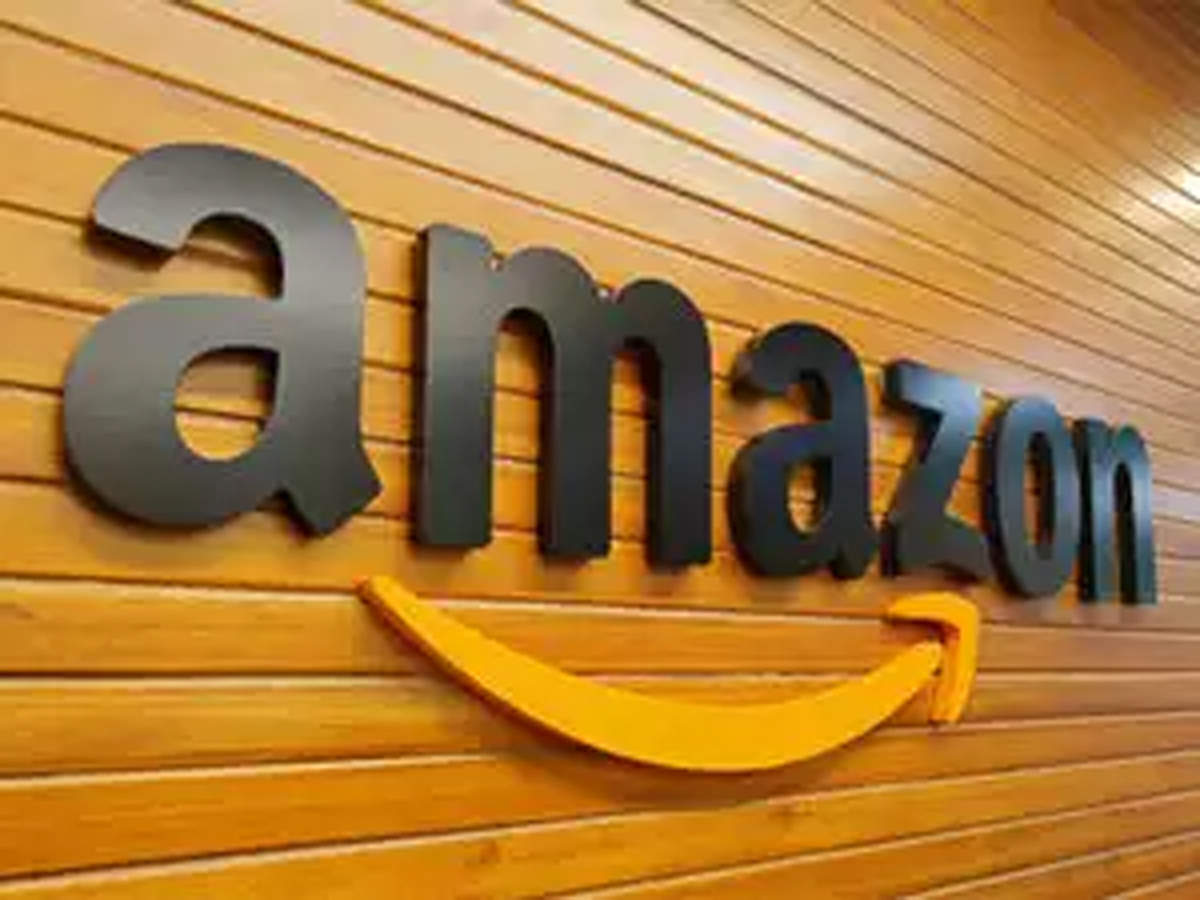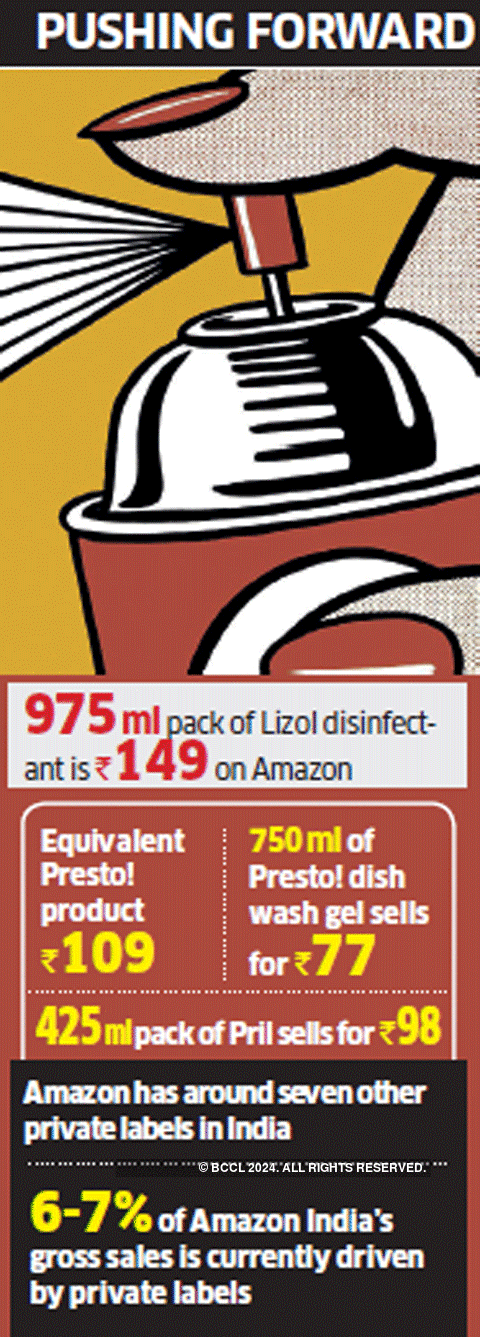 Amazon, which had quietly launched its own range of home-cleaning products under Presto! in India last year, has been significantly undercutting the prices of best-selling brands in the category such as Harpic, Lizol and Pril, to name a few. The drive to grow its private-label business in the FMCG category comes even as some brands and smaller sellers have raised concerns over the marketplace not maintaining a level playing field by favouring its own private labels and captive sellers.
Amazon, which had quietly launched its own range of home-cleaning products under Presto! in India last year, has been significantly undercutting the prices of best-selling brands in the category such as Harpic, Lizol and Pril, to name a few. The drive to grow its private-label business in the FMCG category comes even as some brands and smaller sellers have raised concerns over the marketplace not maintaining a level playing field by favouring its own private labels and captive sellers.While no official announcement of the launch of Presto! was made by Amazon India, the products—which range from floor disinfectants, paper napkins to dishwashing gel— seem to have started going on sale sometime in October last year, while reviews from Indian buyers for many products only date back to January 2019. Presto! has existed as a private label from Amazon in the US and some other overseas markets. Amazon India did not respond to an ET query on the launch and strategy behind Presto!
Products from Presto! go up against household brands such as Harpic and Lizol which are owned by British multinational consumer goods firm Reckitt Benckiser, Pril which is sold in India by Jyothy Laboratories after it acquired a controlling stake in German firm Henkel a few years ago. A 975 ml pack of Lizol’s disinfectant surface cleaner sells for Rs 149 on Amazon, the equivalent product from Presto! is priced at Rs 109. Similarly, 750 ml of Presto! dish wash gel sells for Rs 77, while a 425 ml pack of Pril sells for Rs 98.
Amazon has recruited a slew of local contract manufacturers to produce Presto! products which are being marketed and sold by Cloudtail, the joint venture between Amazon and Infosys founder NR Narayana Murthy’s family office Catamaran Ventures. The US firm recently reduced its stake in Cloudtail to 24% from 49% to comply with local laws.
“With the current regulatory framework, we could see Amazon (brands owned by the ecommerce company) emerging as an FMCG brand on its own. Perhaps it won’t be as widely distributed at a retail channel level as a typical FMCG company, but that’s the lens one has to put on them,” said Devangshu Dutta, chief executive at retail consulting firm Third Eyesight, in relation to regulations that don’t allow marketplaces to control their own inventory. He adds that unlike smartphones and fashion which have driven the bulk of Amazon India’s sales so far, by getting into the FMCG space, Amazon is looking at building frequency among its buyers. “In this market, price is the low hanging fruit, so once they build trust and frequency, they can build the price back up.”

Apart from Presto!, Amazon has around seven other private labels in India. In the fashion category it has Symbol, Myx, House & Shields and Arthur Harvey; in small furniture and appliances it sells products through Solimo; there’s AmazonBasics for small electronics, and electronic accessories; and in groceries it has Vedaka. According to market analyst RedSeer Consulting, 6-7% of Amazon India’s gross sales is currently driven by private labels.
While both Amazon and rival Walmart-owned Flipkart have argued that they launch private labels to plug gaps in their product portfolios, third-party sellers and some brands say that they capitalise on their knowledge of best-selling products and introduce their own clones to drive more business and earn higher margins. Experts also say that private labels pressure big brands to cut prices to stay competitive on their platforms.
No comments:
Post a Comment